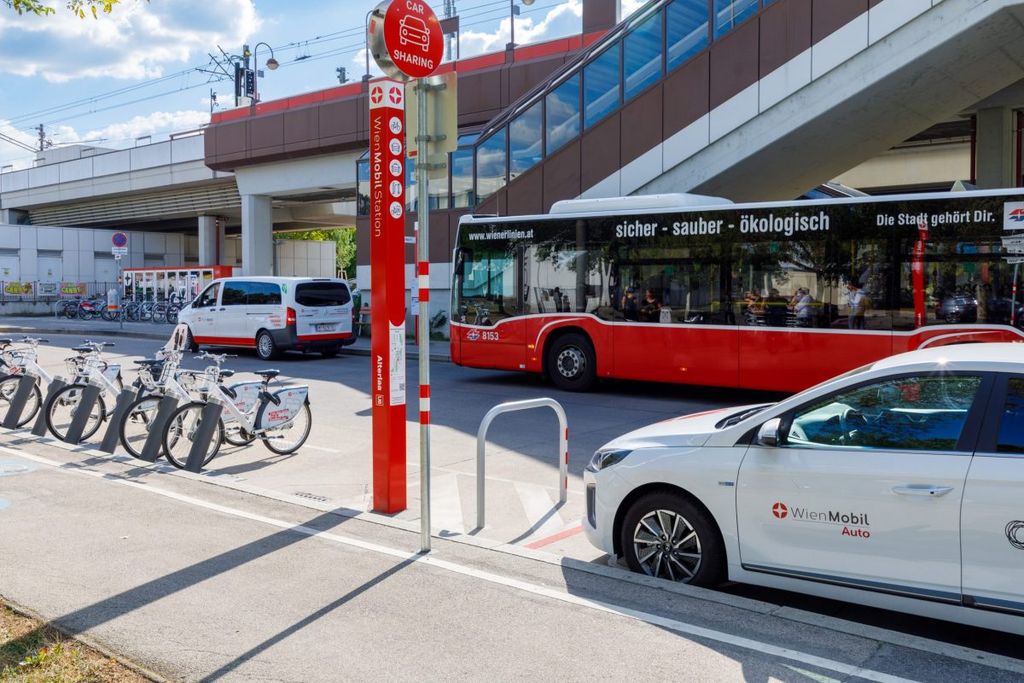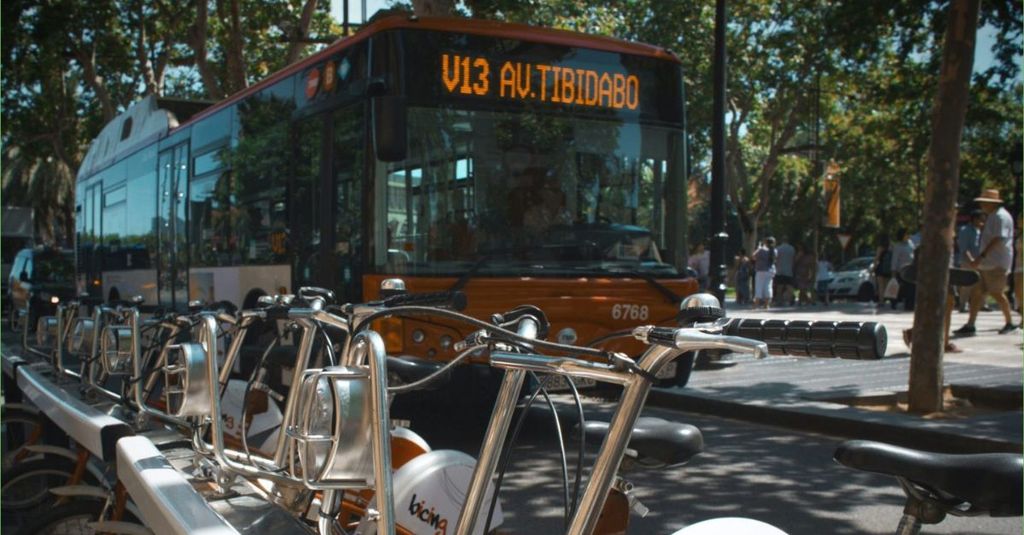
Shared vehicles
A way forward
Private cars are inefficient. But shared and lighter vehicles are booming.
UITP defines shared vehicles as those used by multiple individuals, either on a rental basis or through a peer-to-peer model. This generally includes free floating and docked/station-based shared vehicles that can be utilised on a pay per kilometre or pay per minute basis through a digital application. Shared vehicles refer primarily to shared e-scooters, bicycles, and cars.
Shared cars are simply more efficient. According to a UITP report every car-sharing vehicle in Bremen, Germany for example, replaces – or prevents the purchase of – 16 privately-owned vehicles. Thus the car-sharing opportunities studied account for approximately 5,000 fewer vehicles taking up space on Bremen’s streets and parking spaces. As of January 2023, more than 7,500 cars have been removed from Bremen’s streets due to car-sharing, freeing up nearly 40km of street space.
Micromobility meanwhile, takes up even less space. On short distances, it can replace the car completely. Meanwhile for longer distances, it can feed the public transport network, providing first and last mile solutions for travellers.
To bring the players in this sector together, we are launching a new Shared Mobility Division. UITP’s Shared Mobility Division includes a Shared Vehicles Committee. UITP committees bring together selected professionals from their sectors. They are the active working bodies of UITP and work on peer-to-peer exchanges and creation of knowledge for the sector.
In the Shared Vehicles Committee, the UITP includes:
The road ahead
Shared vehicles are growing in popularity as the issues with private cars pile up. In 1960, there were just 122 million cars worldwide. Today, there are over 1.1 billion cars. This increased car ownership, coupled with a reduction in household size since the baby boom years, has nearly halved vehicle occupancy rates. Meanwhile urbanisation has moved billions into cities, where space is the least available but most in demand.
In 2022 worldwide, there were more than 1,900 bike-sharing schemes in almost 1,600 cities in more than 90 countries in all continents. Around 85% of overall active systems were located in Europe and Asia. According to NACTO, shared e-scooter trips jumped from 40 million (2018) to 86 million (2019) in one year alone in the US. During the same time period, ridership of station-based and dockless bike-share remained stable at 50 million.
As innovations continue, from electrification to increasing a vehicle’s lifespan, so will growth. Over the next decade, the market size of shared vehicles is forecasted to rise significantly.
“The convenience that made the car a 20th century icon has been eroded by its popularity.”
- 23g
Shared e-scooter CO₂ emissions per km travelled (whole-life costs)
- 181g
Petrol car CO₂ emissions per km travelled (exhaust only)
Still, there are challenges and threats the sector needs to keep in mind for the years ahead.
- Competition & consolidation
- Customer experience
- Operational restraints
- Regulations
It is the aim of UITP’s Shared Vehicle Committee to help the sector navigate these challenges.
Want to stay in the loop? Sign up for a UITP newsletter and get the latest news sent to your inbox!
How we will support the sector
The Shared Vehicles committee is at the heart of our engagement with the sector. Its dialogue, especially between operators and authorities, will help move the industry forward, by establishing best practices, encouraging innovation, and making clear the positions of the sector to external stakeholders.
We believe that shared mobility and shared vehicles have a place in the public transport discussion. With properly integrated shared mobility and mass public transport, cities can offer essential mobility to all citizens. This reduces traffic congestion, energy consumption, noise and air pollution, and connects every person in the city to jobs, leisure, and education.
Given the urgency of the climate crisis, the time to build this vision is now.
Discover everything about shared mobility! Find out how to get involved, meet your peers, and stay up to date with the latest expert insights.
Read more about:
The latest from UITP on shared vehicles

Contact
UITP

UITP
Membership benefits




